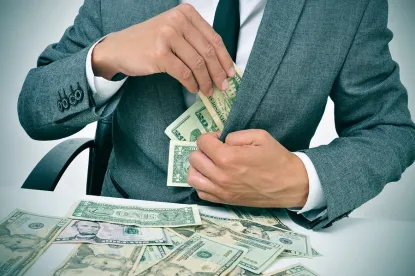Price gouging enforcement and litigation is front and center for company counsel and business managers nationwide. Our weekly round up highlights some of the most relevant news and information for our clients and friends.
D.C. Attorney General Files Lawsuit against Gasoline Retailer for Alleged Price Gouging
On November 12, 2020, D.C. Attorney General Karl Racine filed a lawsuit against a D.C. gas retailer and distributor for allegations of price gouging. According to Attorney General Racine, the company doubled its profits on every gallon of gasoline sold at its 54 gas stations across the D.C. area, despite the prices of wholesale gasoline dropping in March and April 2020. Attorney General Racine stated “[t]he overwhelming majority of the District’s businesses continue to follow the law. In this case, however, OAG’s investigation revealed that—despite lower gasoline prices during the pandemic—[the company] took advantage of the District’s consumers by illegally increasing the price of its products, instead of passing the cost savings along to District consumers as required by law.” The lawsuit seeks injunctive relief, restitution, civil penalties, and attorney’s fees.
New York City Analysis Shows Vulnerable New Yorkers Hit Hardest from Price Gouging
After analyzing the more than 10,000 price gouging complaints received by the New York City Department of Consumer and Worker Protection (DCWP), Commissioner Lorelei Salas announced that the neighborhoods with the most complaints are many of the same neighborhoods that were hardest hit by COVID-19. According to the NYC Consumer Affairs, “[t]hese neighborhoods, which are majority Black and Hispanic, are already financially vulnerable and, with median household incomes of approximately $30,000, can least afford to be gouged on lifesaving items like face masks, hand sanitizer, and disinfecting wipes.” Commissioner Salas further stated “[c]omplaints have slowed but as our city reopens and some supply chains across the country continue to face challenges, businesses—especially those in these neighborhoods—must continue to comply.” Since the beginning of the pandemic, the DCWP has received more than 12,000 complaints related to price gouging and issued more than 15,200 violations.
Florida Expands Price Gouging Law in Response to Tropical Storm Eta
On November 7, 2020, Florida Attorney General Ashley Moody announced that Florida’s price gouging hotline was expanded to cover essential commodities related to Governor Ron DeSantis’ declaration of a state of emergency for Tropical Storm Eta. According to Attorney General Moody “[t]he state of emergency is in effect for the following counties: Broward, Collier, Hendry, Lee, Martin, Miami-Dade, Monroe and Palm Beach. Florida’s price gouging laws for this event apply only within the areas of the declared state of emergency and only for commodities and services essential to preparing for or recovering from the storm event.” Attorney General Moody further stated “ I want to remind Floridians that we are now under multiple states of emergency in Florida—including one for Eta, one statewide for COVID-19 and two in panhandle counties for Hurricanes Michael and Sally. Essential commodities for each declaration may differ, but it remains illegal for sellers to use an emergency to exploit consumers relating to essential items. We will continue to work in real-time to ensure scammers will not get in the way of Floridians protecting their properties and families. If you see potential price gouging, please report it to my office immediately.”
South Carolina Extends Price Gouging Restrictions
On November 8, 2020, South Carolina’s price gouging law was extended for another 15 days, until November 23, 2020. South Carolina’s price gouging law provides “[u]pon a declaration of a state of disaster by the President, in which the disaster area includes all or a portion of the State of South Carolina, it is unlawful and a violation of this article for a person or his agent or employee in this State to: (a) rent or sell or offer to rent or sell a commodity at an unconscionable price within the area for which the state of disaster is declared; or (b) impose unconscionable prices for the rental or lease of a dwelling unit, including a motel or hotel unit, or other temporary lodging, or self-storage facility within the area for which the state of disaster is declared.” S.C. Code Ann. § 39-5-145.







 />i
/>i

